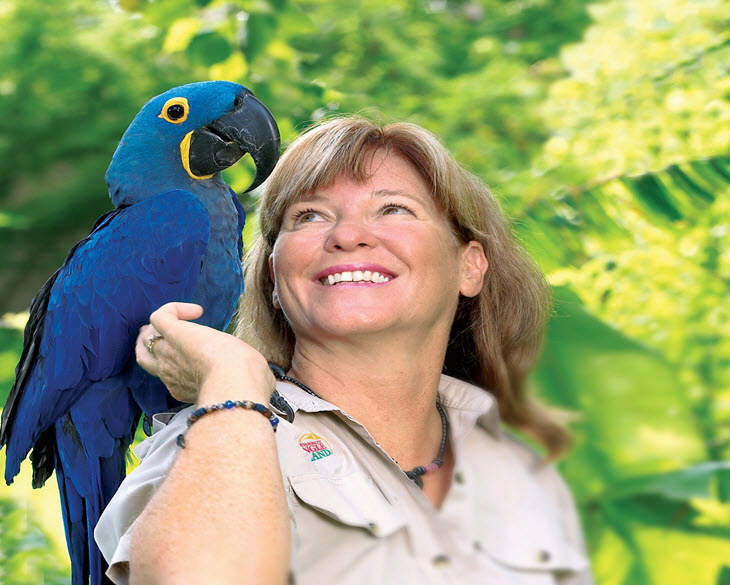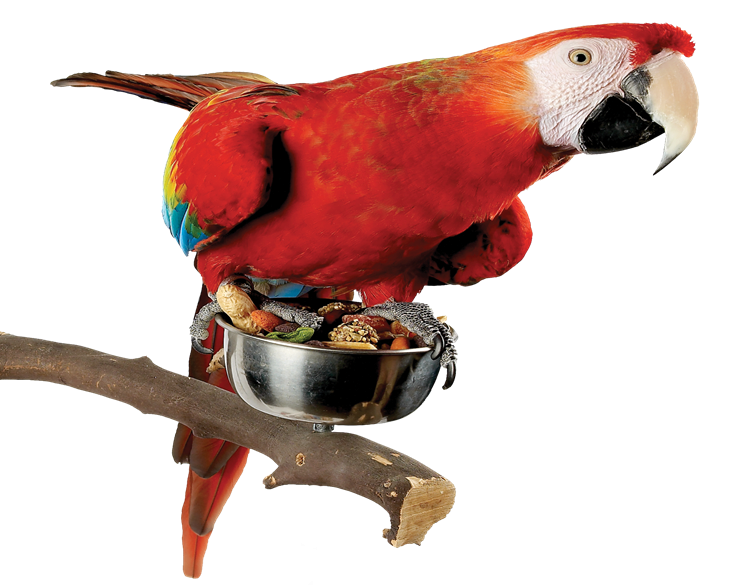
When given a proper diet, a clean home, and routine veterinary care visits, birds will happily take flight in your life as lifelong companions!
Some household hazards to avoid to keep your pet birds healthy:
Ceiling & Portable Fans
If your bird is free-flying, fans can be a source of extreme danger and severe injury. Just make sure they are turned off when your bird takes flight!
Hot Stoves & Appliances
Heated surfaces may be a source of severe burn!
Windows, Doors, Closets and Drawers
Flying into a closed window or door can easily break your pet bird's neck, cause a concussion or damage its beak. If left open, birds may fly through windows and doors so try to monitor where your bird is free-flying!
Non-Stick Cookware
PTFE coated cookware, such as Teflon®, release poisonous fumes to your pet bird if temperatures are extremely high. If ingested, these fumes can cause respiratory distress, lack of coordination, seizure and even death.
Poisonous Plants
Many plants are hazardous for household birds. Some of the most common toxic plants include: Azalea, Jerusalem Cherry, Poinsettia, and Mistletoe.
Food
Commonly consumed foods, such as avocado, chocolate, alcohol and fatty foods, may be dangerous for your pet bird!
Other household pets
Mild scratches or bites can become life threatening.
Paint fumes, insecticides, and all other poisons
Sharp objects Sharp shiny objects may seem like toys to your curious birds but they can be very harmful. They can puncture their bodies and beaks, causing mild to severe injury!
Open water
Free-flying birds may fly into sinks, toilets or bathtubs and may not be able to get out.
Cages
Try to avoid sharp edges, bars too wide or broken bars and this could cause damage to their wings and beaks. Also, if the bars are too wide, your bird can get out of their cage and encounter the above described hazards!

Because birds masterfully hide any sign or symptoms of illness, you need to learn to recognize subtle changes in your birds' everyday behavior. Such as the following:
- Discharge from their eyes or nostrils
- Heavy difficult breathing
- Change in feather maintenance. More frequently fluffed feathers or matting around eyes and beak.
- Change in dropping color, consistency and form. Try to observe changes over a 12-24 hour period.
- Decrease in vocalization, food & water consumption, activity and preening
- Sitting on bottom of cage instead of perch.
Remember it is very important to take your bird to an avian veterinarian for regular checkups to ensure their health. A nutritional diet and good environment means a healthy bird!
*Teflon is a registered trademark of The Chemours Company FC, LLC.
